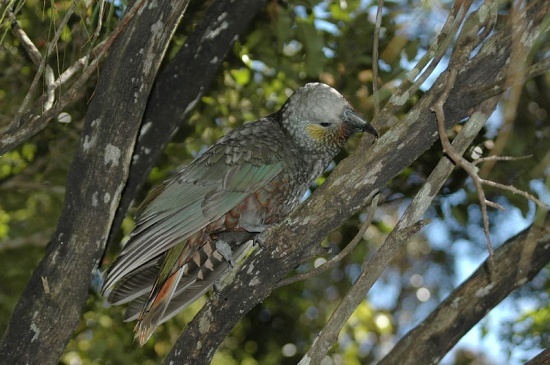| Line 1: | Line 1: | ||
;Nestor meridionalis | ;Nestor meridionalis | ||
| − | [[Image:New_Zealand_Kaka.jpg|thumb| | + | [[Image:New_Zealand_Kaka.jpg|thumb|550px|right|Photo by Ornitho26 <br/>Photo taken: Ulva island (off Stewart, NZ) |
]] | ]] | ||
==Identification== | ==Identification== | ||
| Line 19: | Line 19: | ||
Its prime energy food is drops of honeydew, a sugary substance produced by a small beetle which lives in the bark of some Beech trees. | Its prime energy food is drops of honeydew, a sugary substance produced by a small beetle which lives in the bark of some Beech trees. | ||
==External Links== | ==External Links== | ||
| − | {{GSearch|Nestor+meridionalis }} | + | {{GSearch|Nestor+meridionalis}} |
*[http://www.aviceda.org/abid/birdimages.php?action=birdspecies&fid=20&bid=187 View more images of this species on the ABID] | *[http://www.aviceda.org/abid/birdimages.php?action=birdspecies&fid=20&bid=187 View more images of this species on the ABID] | ||
[[Category:Birds]][[category:incomplete]] | [[Category:Birds]][[category:incomplete]] | ||
Revision as of 16:02, 21 December 2007
- Nestor meridionalis
Identification
45cm. Olive brown with darker feather edges, light grey crown, crimson collar, lower belly and undertail, golden wash on cheeks. The male has a longer and more arched bill. The juvenile has a yellow base to the lower manidble.
Distribution
Taxonomy
Habitat
Forests
Behaviour
It has a bristle tongue which enables it to take nectar in its diet. It also takes insects. Its prime energy food is drops of honeydew, a sugary substance produced by a small beetle which lives in the bark of some Beech trees.




